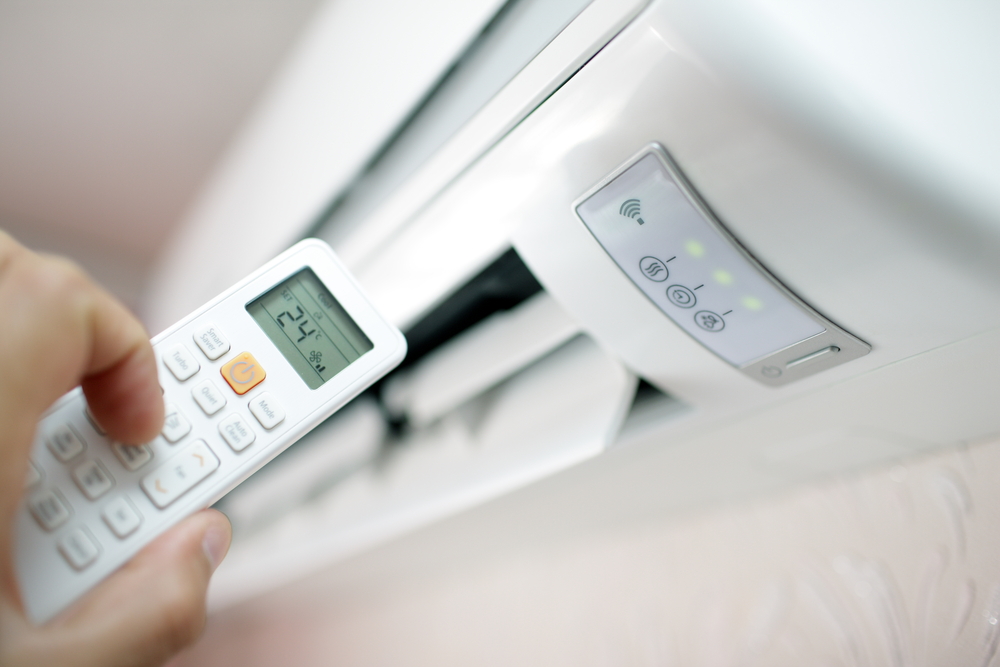The last thing any family needs on a summer day where the heat is kicking is to have their air conditioning unit fail on them. This can leave a family dealing with intense heat that potentially poses a health risk to everyone which is why getting the issue solved quickly is so important. However, what is even better than fixing the air conditioning when it goes out is ensuring it doesn’t fully go out in the first place. The best way to go about this is to learn the common signs that an AC unit is failing and what is involved in the repair process.
How Long Do Air Conditioners Last?
On average, the average lifespan of an air conditioning system is 10-15 years, meaning your unit will likely not need to be replaced for well over a decade if you moved into a newer home. However, it’s important to know the signs of a failing AC unit as you may not know the last time yours was replaced if you move into a home that isn’t new. Additionally, certain factors over the years can reduce the lifespan of your AC unit further, such as humidity, run time, a lack of maintenance and more, leading to repairs being needed.
How Much Does AC Unit Repair Cost?
Generally, the cost associated with AC unit repair is $150-$650 depending on the severity of the issue with the AC unit. This involves a $75-$150/hour average labor cost, which is combined with the cost for potential parts. There are factors which can change this total cost, such as the age of the AC unit, but this average serves as an excellent benchmark.
Common Signs of a Failing AC Unit
The best way to tackle a potentially failing AC unit is to identify the signs that it may be about to go bad. This can lead you to contact repairmen to handle the issue before it degrades into a bigger problem overall. To that end, keep an eye out for the following seven signs:
Only warm air is coming out of the vent
Perhaps the biggest sign that your AC unit is going bad is that you notice only warm air coming out of your vents. The way an AC unit works is by sucking in air through the vents and cooling it using an evaporator in the system to remove the heat. The air is then blown back into the house until the desired temperature is reached. When an AC unit isn’t working properly, it will not cool down the air completely, or at all, when the AC is running.
You notice odd smells when the unit turns on
Another tell-tale sign that your air conditioning unit is about to go bad is that you begin to notice odd smells coming from the unit itself. The most common culprit is that the AC unit stopped removing moisture from the vents and mildew was allowed to build up. This mouldy air then accumulates and results in the nasty smell coming from the vents.
Abnormal costs occur with your utility bill
AC units are built to cool your space efficiently which results in a relatively stable utility bill on a monthly basis so long as the level of use remains constant. However, a key sign that an AC unit may be going bad is if your utility cost suddenly skyrockets despite the amount of use your AC unit is getting hasn’t really changed.
The airflow from your vent is oddly weak
One major sign that your air conditioning unit is having problems is if the airflow has been weakened. There are a variety of causes for this such as a clogged air filter, blocked vents due to accumulated dirt or debris around the part of the unit that is outdoors, leaks, or even low refrigerant levels. Given this variety in causes, it’s important for a professional to diagnose the issue.
The thermostat has become less correlated
Should the thermostat and air conditioning unit stop being correlated, a faulty AC unit could be the cause. For example, switching your thermostat to cool yet nothing happening or the air flowing but only being warm, it’s possible the cause is the AC unit. Regardless, this symptom will also require a professional diagnosis from a certified professional.
The humidity levels have increased in the home
Many people often believe that all an air conditioning unit does is remove warm air from a home and that it then cools the air. However, it is also responsible for removing humidity by collecting and then draining any condensation that forms through the water vapor in the air of your space. When an AC unit begins to go bad, it will be increasingly less efficient at removing the humidity from a home which will result in it remaining within the home.
The unit itself has become old
Finally, it’s entirely possible that you may not notice any symptoms of a failing air conditioner. However, it’s important to take the potential age of your AC unit into account. If you know your unit is over a decade old, it may be worth contacting a repair service to take a look to handle any preventative maintenance. This can save you from needing to pay a major repair cost that comes from never maintaining your system.
What is Involved in AC Unit Replacement?
Replace your air conditioner today Allowing your AC unit to expire can present unnecessary risk to you and your family on a warm day, so take the time to contact professionals who can tackle the issue on your behalf. While AC repair is not the cheapest cost and may take longer than you are expecting, it’s a necessary task to get done. Even if your AC unit doesn’t go out during the summertime, taking care of the problem as soon as possible is recommended. Contact professionals in your area to solve the issue right away.































